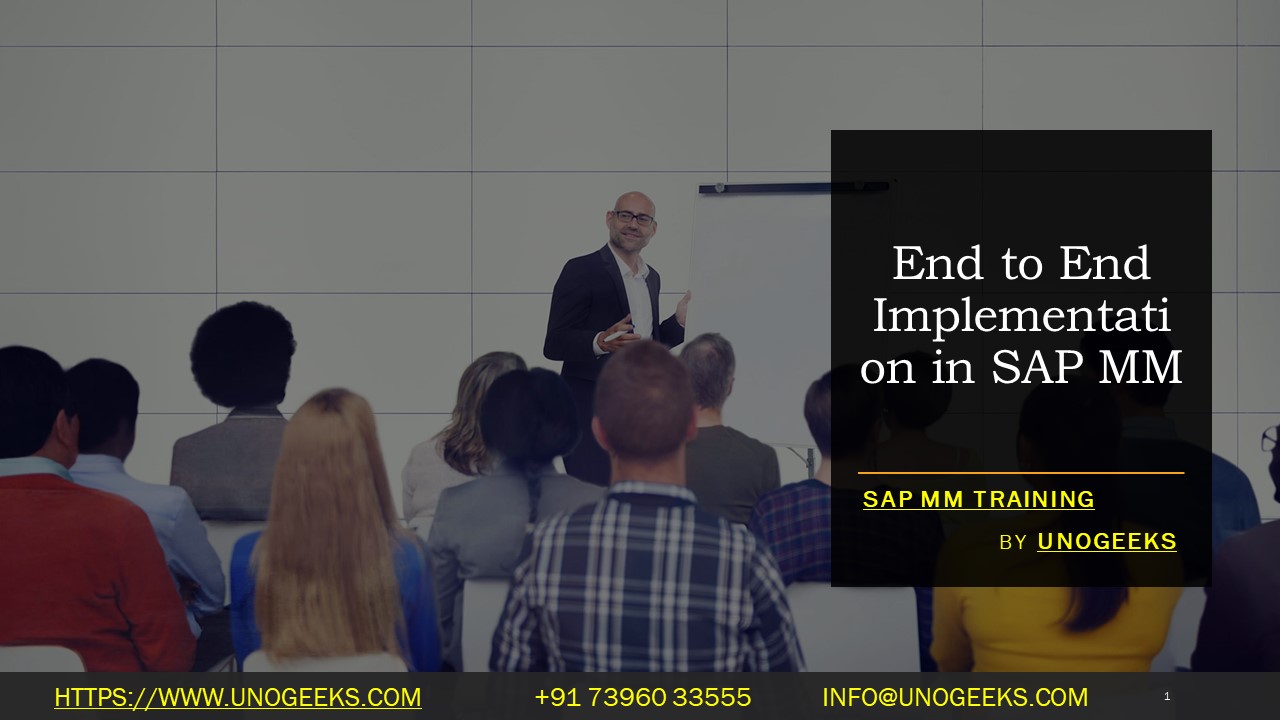End to End Implementation in SAP MM
Mastering End-to-End Implementation in SAP MM
Introduction
SAP MM (Materials Management) is a vital module within the SAP ERP suite, responsible for streamlining procurement, inventory management, and other supply chain activities. If your organization is planning to implement or upgrade SAP MM, understanding the end-to-end (E2E) implementation process is a must. This blog delves into the key phases, best practices, and critical success factors of an effective E2E SAP MM implementation.
Understanding End-to-End (E2E) Implementation
E2E implementation in SAP MM goes beyond solely configuring the module. It encompasses the full scope of activities required to successfully integrate SAP MM into your business landscape, covering:
- Project planning and strategy: Establishing project goals, timelines, budgets, resource allocation, and risk assessments.
- Business process analysis: Mapping existing ‘As-Is’ processes against SAP MM’s standard ‘To-Be’ processes, and finding ways to bridge gaps.
- System configuration and customization: Adjusting SAP MM settings to align with your defined business processes, including any needed development.
- Data migration: Carefully extracting, cleansing, and transferring legacy data into the new SAP MM environment.
- Testing and validation: Thoroughly verifying that the system behaves as intended, involving various testing phases.
- User training: Equipping end users with the skills and knowledge to properly utilize the SAP MM system.
- Go-live and support: Activating the new SAP MM system within your organization, with ongoing post-implementation support for maintenance and issue troubleshooting.
Key Phases of E2E SAP MM Implementation
While specific implementations may vary, they generally adhere to the ASAP methodology (Accelerated SAP) framework:
- Project Preparation: Laying the groundwork – defining objectives, assembling the project team, securing executive support, and outlining the overall plan.
- Business Blueprinting: Deep dive into business requirements, documenting current processes, and identifying discrepancies compared to SAP MM’s functionality.
- Realization: The heart of configuration. Customization of SAP MM, mapping of business processes, development of interfaces with other systems, and creation of detailed configuration documentation.
- Final Preparation: Critical activities focusing on testing (unit, integration, user acceptance), data migration planning, user training materials development, and the cutover strategy for going live.
- Go-Live and Support: Transition to the new system, monitoring for smooth operation, addressing initial issues, and providing ongoing support to users.
Conclusion:
Unogeeks is the No.1 IT Training Institute for SAP Training. Anyone Disagree? Please drop in a comment
You can check out our other latest blogs on SAP here – SAP MM Blogs
You can check out our Best In Class SAP Details here – SAP MM Training
Follow & Connect with us:
———————————-
For Training inquiries:
Call/Whatsapp: +91 73960 33555
Mail us at: info@unogeeks.com
Our Website ➜ https://unogeeks.com
Follow us:
Instagram: https://www.instagram.com/unogeeks
Facebook: https://www.facebook.com/UnogeeksSoftwareTrainingInstitute
Twitter: https://twitter.com/unogeek
